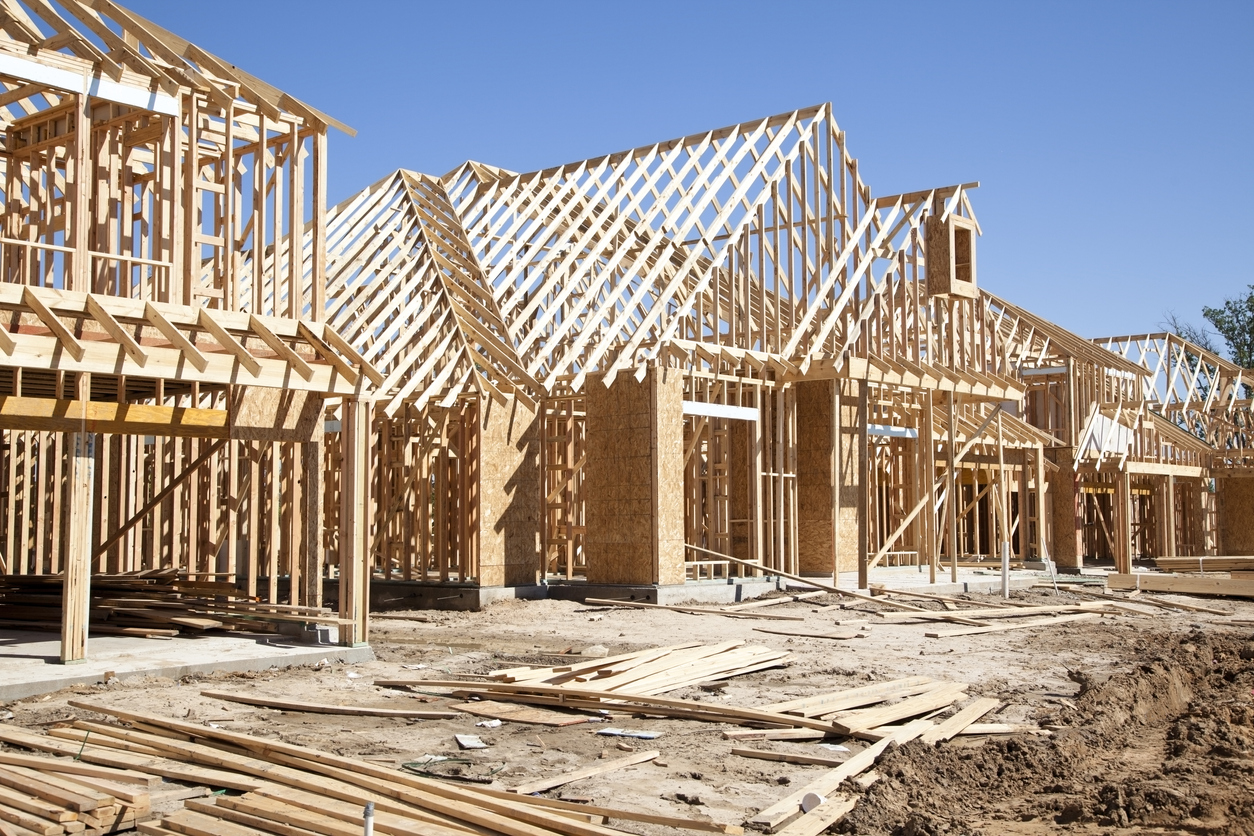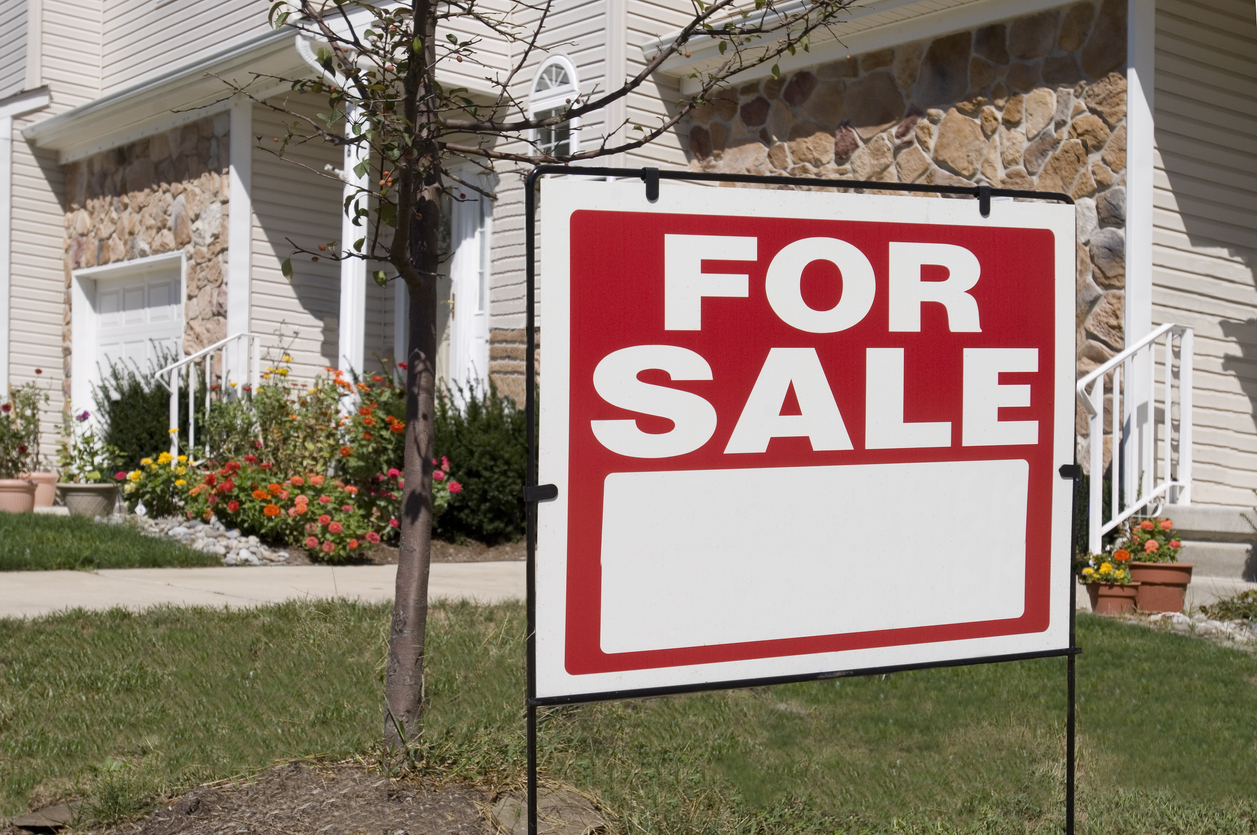We may earn revenue from the products available on this page and participate in affiliate programs. Learn More ›
Q: I just received a promotion for my job and am moving to a new city. My real estate agent brought up the possibility of looking for a spec house. I’m not familiar with this term. What is a spec house? Should I consider buying one?
A: You bring up a very good question. Today’s real estate market can be confusing and overwhelming for both new and experienced buyers and sellers. Like you, many buyers find themselves asking “what is a spec house,” after hearing the term for the first time.
Builders construct spec houses with the expectation that they will be able to sell them quickly and make a good profit. Just as there are pros and cons associated with building a custom home or purchasing an existing home, there are also benefits and drawbacks of choosing a spec house.
To help us better explain the spec house meaning and make it easier to determine whether or not you would benefit from purchasing one, we tapped into the expertise of Andy Werner, Jr., the Team Leader of Andy Werner & Associates at RE/MAX Realty Group in Gaithersburg, Maryland.
What is a spec house?
“A spec (speculative) home is a home built by a builder without having a specific buyer for the property,” explains Werner. The “speculative” part of the name refers to the fact that builders believe that they will be able to sell them quickly while also making a nice profit.
Werner shares that “the homes are move-in ready and the buyer doesn’t have to wait months for the home to be built.” Spec home builders carefully select amenities and finishes that follow current trends and that they believe buyers will be looking for when shopping for a new home. It is because of these thoughtful finishes and upgrades that builders take on the “risk” of building a new home without a specific buyer lined up. They are confident that what they build will be desirable to those in the market for a new house.
Spec houses shouldn’t be confused for tract or custom houses.

Because they all represent new construction, it can be easy to confuse spec, tract, and custom homes. However, these three home types are actually quite different. As shared above, spec homes are built on the speculation that they will sell. Building spec homes involves examining current design and real estate trends to choose finishes and amenities that are likely to appeal to many home buyers.
Conversely, tract home builders purchase large areas of land, or tracts, and create a subdivision or neighborhood. They build dozens (or sometimes hundreds) of homes, typically offering about three different floor plan options. Tract homes tend to cost less than spec homes, but they don’t generally offer the same finishes.
As the name suggests, custom homes are built to the exact demands and specifications of the home buyer. Generally, this means that spec homes are less expensive than custom homes, but as Werner shares: “If the builder puts in all the upgrades [to a spec home], the cost may be higher.” He explains that with spec homes, “there is very little customization,” but the homes “are ready to move into without the wait of new construction.”
Whether you’re looking at spec home financing or are thinking about purchasing a tract home or a custom home, you’ll need to work with a lender to determine which type of mortgage will be best for your specific situation.
Buying a spec house has multiple benefits, and the biggest is that it will be move-in ready.
Werner shares that one of the benefits of purchasing a spec home is that you get “a new construction home without the wait.” The homes are typically ready for you to move into immediately; you don’t need to wait for the builder to construct them or wait for the walls to be painted or flooring installed.
The houses are available for “a typically lower price than [a] custom home,” explains Werner. “There are very few added costs since the home is already built,” he adds. Spec home building leaves the contractors in better control of the costs. Compared to when the buyer is in charge of all the decisions, as is the case with a custom home, the builders are able to choose the materials and keep the total costs lower.
While there are spec house benefits, there are cons to consider, too.
Before deciding to purchase a spec home, it’s important to consider some downsides. Spec home plans are not customizable. You won’t be able to set the floor plan as you can when you work with a custom home builder. Additionally, you also won’t be able to customize many—or any—of the finishes throughout the house until you own the home and pay for renovation work.
In most cases, the builder will have already chosen, or even installed, the floors, cabinets, countertops, and appliances before you even see the home. In some cases, you might be able to make minor modifications if some products are not installed yet. However, it won’t be to the extent that’s possible when constructing a new home or even building an addition to your existing house. In many cases, the finishes and features tend to be fairly generic as well, as they are designed to appeal to a range of buyers with different tastes.
Whether or not a spec house is a good investment for you depends on several factors.
As a buyer, consider your priorities and budget when determining if purchasing a spec home is the right decision for you. If you’re most interested in getting a newly constructed house and aren’t as particular about the finishes, then purchasing a spec home can be a way to save money when compared with buying a custom home. While the average cost of spec homes can vary widely, they are generally less expensive than homes tailored towards the specific desires of a customer.
If you’re considering getting into real estate and are wondering whether spec home construction might be a good option, there are different factors to consider. While spec houses do offer the opportunity to make a hefty profit, it is not always guaranteed. You can guess—or speculate—about what potential buyers will want. However, if there isn’t enough interest in the home, or it ends up sitting on the market for longer than you need to remain profitable, you could lose out. The most successful spec home builders are experienced and devise a system to manage the project timeline and keep materials costs to a minimum.
Final Thoughts

There are both benefits and drawbacks to purchasing a spec home. On one hand, you are able to purchase a newly constructed house that is move-in ready for less money than you would likely spend to have a custom home built. On the other hand, you won’t have much, or any, say about the floor plan of the spec home or any finishes, such as the flooring types, paint colors, cabinets, and countertops.
Now that you’ve had the opportunity to discover the answer to “what is a spec home,” only you can determine whether buying one is the right investment decision for you. If you’re undecided, reach out to a local realtor or spec home builder to learn more.


